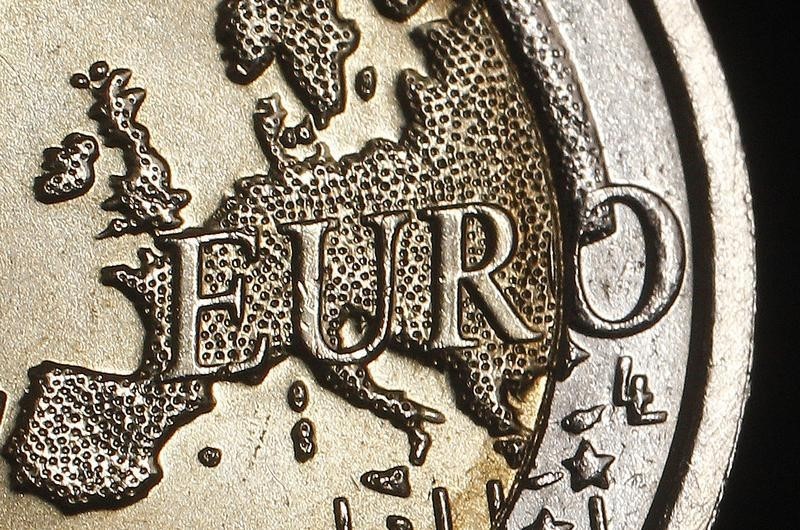Investing.com - The euro fell to the day’s lows against the dollar and the yen on Monday after data showing that the euro area fell back into deflation in February for the first time in five months cemented expectations for more central bank stimulus.
EUR/USD touched lows of 1.0896, the weakest since February 2 down from around 1.0915 earlier.
The drop in the euro came after Eurostat said the consumer price index fell 0.2% on a year-over-year basis after rising 0.3% in January.
It was the first negative inflation figure since September, when consumer prices fell 0.1%, and is well below the European Central Bank’s target of close to but just below 2.0%.
Economists had expected the annual rate of inflation to tick down to 0.1%.
The fall was due in large part to falling energy costs, which were 8% lower in the year to February compared to the previous month's 5.4% drop.
Core inflation, which strips out energy costs, fell to 0.7% from 1.0% in January.
The weak data added to pressure on the ECB to step up measures to bolster price growth in the region ahead of its upcoming meeting on March 10.
The bank is expected to unveil fresh measures, including a cut to its already negative deposit rate and adjustments to its asset-purchase program.
The euro extended losses against the firmer yen, with EUR/JPY down 1.18% to 123.13, not far from the three-year trough of 122.44 set last Wednesday.
Demand for the yen, which tends to be bought by investors in times of market uncertainty, continued to be underpinned after China took steps to weaken its currency and bolster market liquidity on Monday, adding to concerns over the outlook for the world’s number-two economy.
The yen also found support after a weekend meeting of G20 leaders ended without any concrete measures to get the global economy back on track after a rocky start to the year.
The dollar was sharply lower against the yen, with USD/JPY down 0.96% to 112.89.
The U.S. dollar index, which measures the greenback’s strength against a trade-weighted basket of six major currencies, was holding steady below last week’s three-week peaks at 98.2, supported by weakness in the euro.
